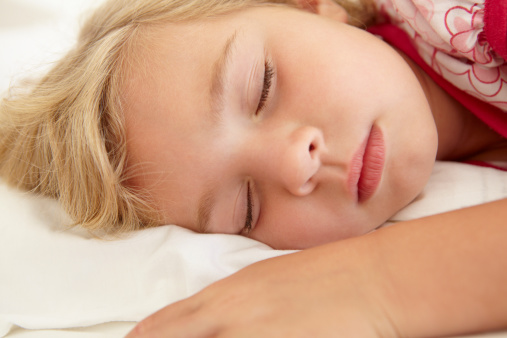
Most parents know that their children tend to be irritable when overtired, but one of Einstein’s fellows in developmental and behavioral pediatrics, Rebecca Scharf, M.D., wondered whether children who sleep less have worse behavior in general.
Before we conducted a study published in the July/August issue of the Journal of Developmental & Behavioral Pediatrics, which I co-authored with Dr. Scharf, we looked at a variety of sources to try to find out how much children should sleep. We found little information, and saw suggestions that the amount of sleep children get may actually be decreasing.
To determine whether the amount of sleep was related to the behavior of children, we analyzed existing information in a nationally representative sample of U.S. children born in 2001 who were 4 years old at the time of the study. The original study was conducted by the U.S. Department of Education and followed almost 9,000 children.
In that study, parents reported the usual time that their children went to sleep at night and the usual time that they woke up on weekdays. They also reported on their children’s behavior. Using this information, we calculated the amount of nighttime sleep for each child and the occurrence of problems in six areas of behavior:
- aggression
- overactivity
- anger
- impulsivity
- tantrums
- annoying behaviors
We found that the average amount of sleep these 4-year-old children got was almost 10.5 hours each night. Children who were poor, or who lived in households without both parents, were likely to sleep somewhat less than children who were not poor or who lived with both parents, but all groups averaged well over 10 hours per night.
Only about 16 percent of the 4-year olds slept less than 9.5 hours. What we discovered is that the parents of those children were more likely to report behavior problems of all types. These findings were present even when controlling for differences in the children’s backgrounds. For each additional hour they slept, however, children were about 20 to 40 percent less likely to have any of the behavior problems—again, even after controlling for differences.
Unfortunately, we are not sure how much sleep the children got during the day while napping and don’t know that the parents were fully accurate in their reports, but the results were so consistent and dramatic as to suggest that we should all make sure that children get adequate amounts of nighttime sleep.
Does this mean that all children who don’t get enough sleep will have behavior problems? It’s not clear whether a lack of sleep causes behavior problems or whether children with behavior problems are more likely to sleep less.
Until we know which comes first, we can’t make specific recommendations for interventions, but the study does allow us to help parents know what the average amount of nighttime sleep is for children this age and to encourage parents to try to provide opportunities for adequate sleep time for their children.
It also suggests that when we see young children who are having behavior problems, we should explore their nighttime sleep patterns before looking at other factors.
Rebecca Scharf, M.D., was a fellow in developmental and behavioral pediatrics when she conducted this research under the supervision of the other authors of the article. The study is “Nighttime Sleep Duration and Externalizing Behaviors of Preschool Children.”


Comments on this entry are closed.
In my eyes, these findings are self-evident and not at all novel. Even to an adult, lack of sleep will lead to some problems. In fact, we can ask some questions that are more scientifically significant, for example, what are the effects of long-term late sleep (but enough sleep hours) on children’s health and behaviors?